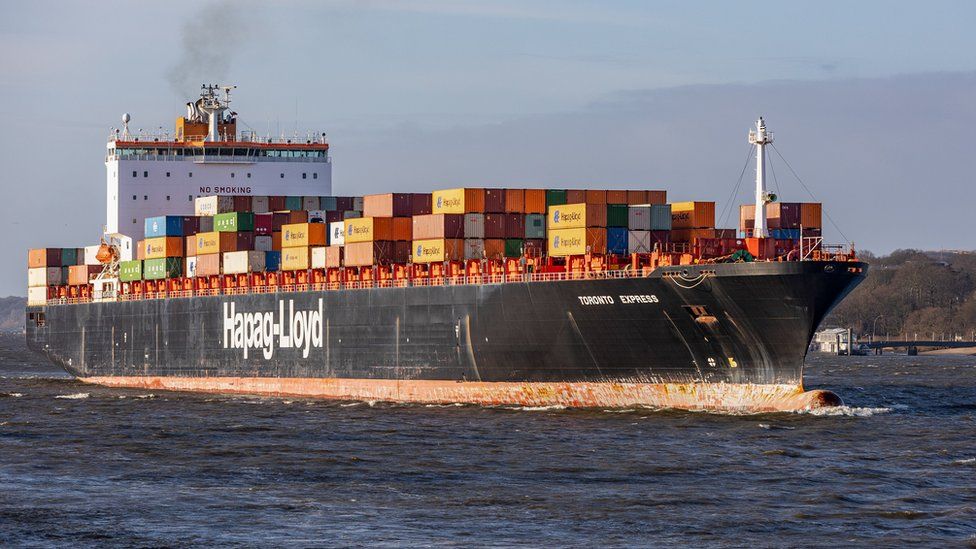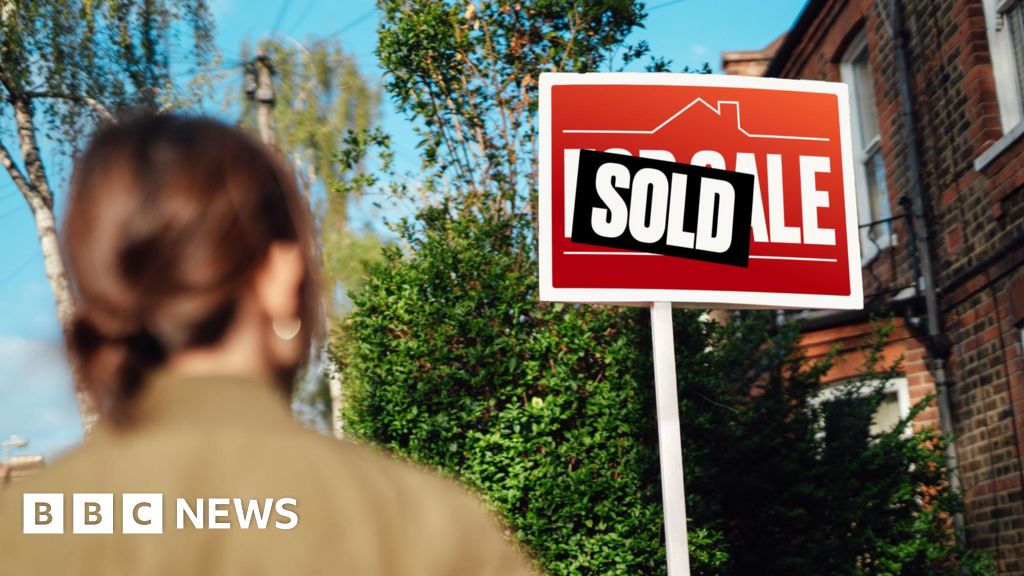ARTICLE AD BOX
 Image source, Getty Images
Image source, Getty Images
By Faarea Masud
Business reporter, BBC News
One of the world's biggest shipping firms, Hapag-Lloyd, will not resume its use of the Suez Canal despite an international military operation to keep the area safe.
Yemen's Houthi rebels backing Hamas in the Israel-Gaza war said they are targeting vessels which they believe are heading for Israel.
Several firms have stopped using the route following attacks.
On Tuesday, Danish shipping firm Maersk said it will resume Red Sea operations.
But Germany's Hapag-Lloyd said it considers passage through one of the world's most popular trade routes still "too dangerous", and that it would continue to reroute its ships via the Cape of Good Hope. The firm is the world's fifth largest shipping firm by capacity.
A spokesperson added that it will review its decision on Friday.
Some ships using the Red Sea, with Yemen to its south, have come under attack from drones and rockets by Houthi rebels. In response, more than a dozen countries have joined a US coalition called Prosperity Guardian to try and protect commercial shipping in the area.
Hapag-Lloyd's announcement comes a day after the Mediterranean Shipping Company (MSC) said that one of its container ships was attacked while transiting the southern Red Sea en route to Pakistan from Saudi Arabia.
In a statement, the Switzerland based company said it had informed the coalition naval task force and "as instructed, engaged in evasive manoeuvres".
All crew were safe with no reported injuries, MSC added.
With the Suez Canal to the north of the Red Sea, it makes the route one of the world's most important routes for consumer goods, oil and liquefied natural gas shipments.
The alternative route, around the Cape of Good Hope, adds about 3,500 nautical miles to the journey - leading to fears of disruption to the supply of goods transported through the Suez Canal, and an increase in prices to cover the higher transport costs.
Furniture giant Ikea has said supplies of its products could be delayed following rebel attacks on ships using the route, while giant BP said that it would temporarily pause all shipments of crude through the Red Sea.
Hapag-Lloyd has told the BBC that 25 ships are facing diversion.
The length of delays the ships face in reaching their destination vary in length from 18 days for those heading to or from the eastern Mediterranean, to 10-14 days for those travelling to or from Northern Europe, and 7 days for US east coast journeys.
Although some companies like France's CMA CGM and Maersk are slowly preparing to re-use the route, the difficulties in the area will affect various economies as it is a key route allowing trade between Europe and Africa.
Mohamed Ata, an Egyptian analyst for the Universal Stock company, said Egypt would be hugely impacted by the tension.
"Amid a global recession, Egypt is grappling with shortages of foreign exchange reserves caused by the impact on the Suez Canal, which serves as one of Egypt's main sources of foreign currency. As the most crucial waterway globally, any disruptions in the canal will significantly impact Egypt's foreign currency earnings", he said.

 1 year ago
20
1 year ago
20








 English (US) ·
English (US) ·